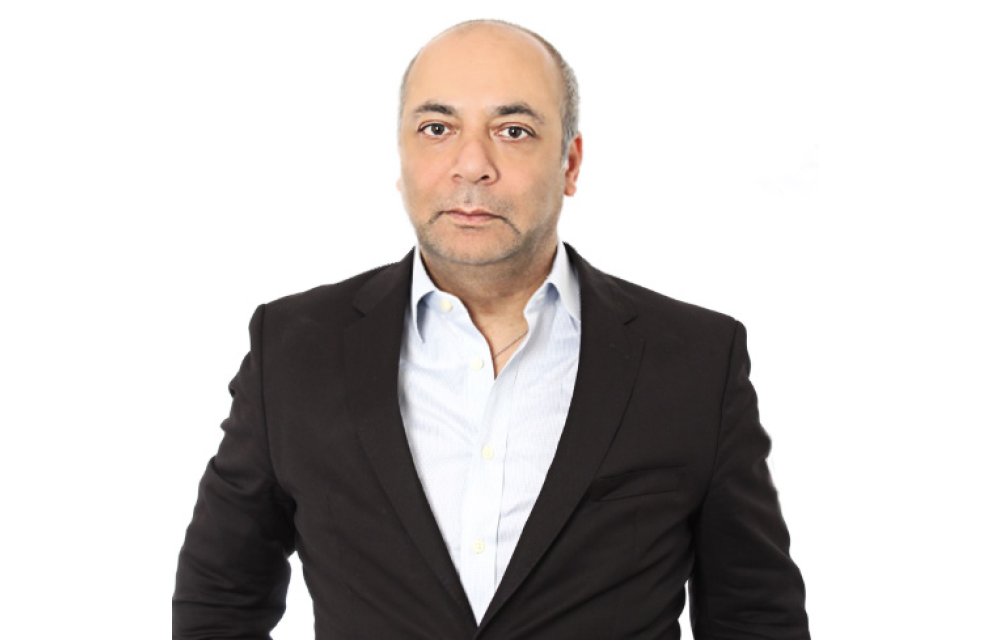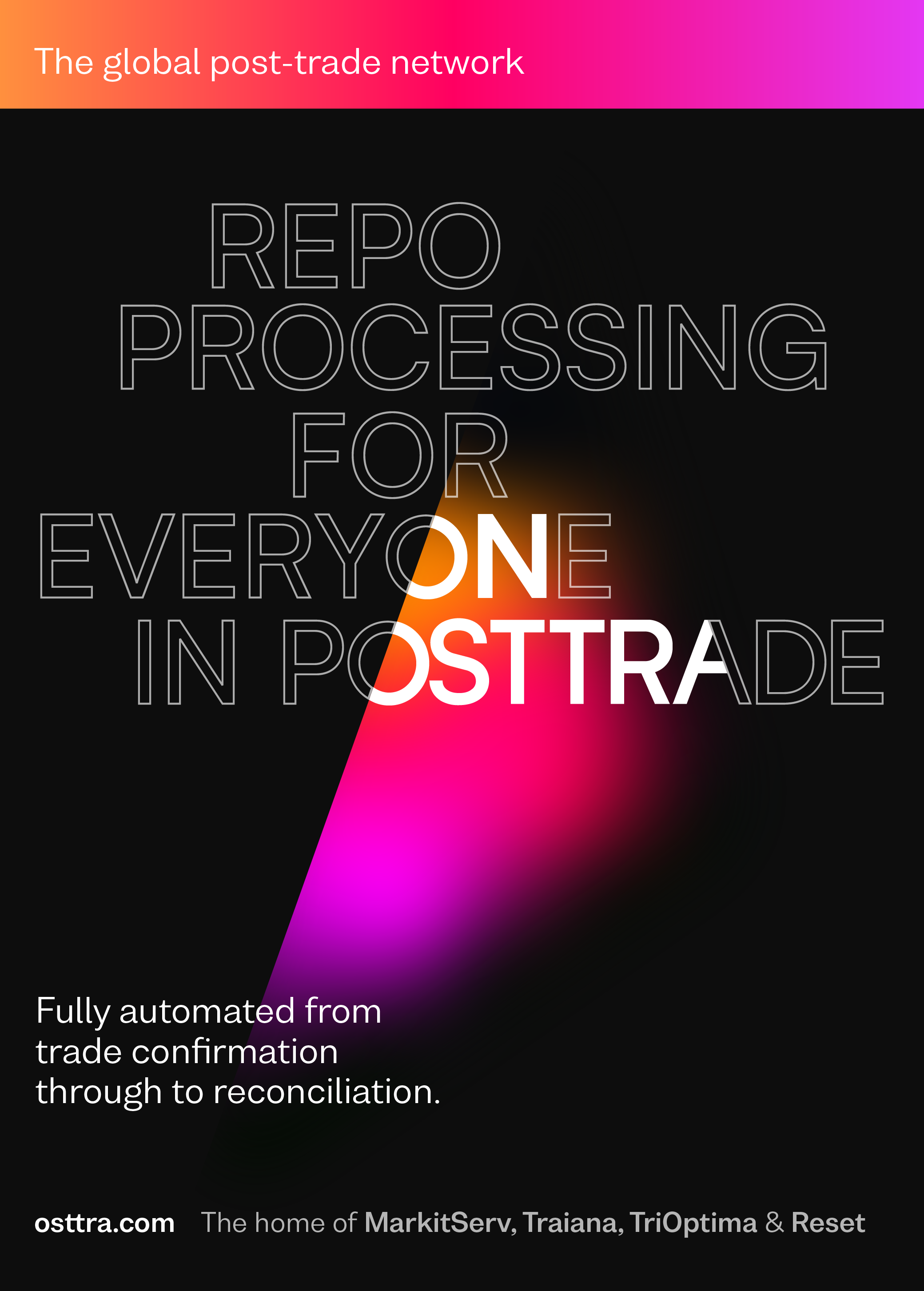Sunil Daswani explains why workplaces should be inclusive of all people, no matter their differences
Lesbian, Gay, Bisexual, Transgender and Queer (LGBTQ) Pride Month is celebrated each year in the month of June to honour the 1969 Stonewall Uprising in Manhattan. The Stonewall Uprising was a tipping point for the Gay Liberation Movement in the US.
It has now been 50 years since this uprising and many industry sectors are finally looking seriously at all areas of equality in the workplace. Securities Lending Times speaks with Sunil Daswani, business development for securities lending and repo solutions at MarketAxess, about the challenges he has faced as a gay man working in the finance industry. What follows are his very own personal experiences and opinions.
How did you get into the finance industry?
From a very young age, I always had a passion for finance. My father, who I am very close to, was a huge influence and support to me and his desire was to see his son in finance. I come from a family who are generally mathematicians or scientific in nature. I focused my academic life by building up the knowledge I needed to be in finance from studying Economics to eventually majoring in accounting and finance a BSc. (Econ) from the London School of Economics. My career mainly spanned across three banks before I ended up working for a leading fintech firm—MarketAxess. I have covered nearly every role from operations to middle office and within the front office product development and management, trading and sales/relationship management. My current role at MarketAxess is as a senior consultant helping to develop its securities lending and repo businesses, including taking its new Securities Financing Transactions Regulation (SFTR) joint solution to market.
Over the past few years, a lot of securities finance conferences have had panels discussing the benefits of a diverse workforce, but this diversity seems to only extend as far as gender. Why do you feel this is?
This is indeed an interesting topic to bring up. Diversity and inclusion is front and centre of nearly every industry around the globe. Of course we do not need to recognise this just in the workplace but it should be everywhere from, schools, homes and in any form of recreational activity.
Every type of protected characteristic is important in its own way: gender, race, age, disability and sexual orientation. The one area of discrimination that could be different really is sexual orientation as most other forms of discrimination are against things visible to the human eye. Sexual orientation is generally not visible, and certainly not all the time.
As this key difference exists, and given the slow evolution of LGBTQ+ awareness and acceptance, coming out for people has more often than not been incredibly difficult. Of course, this varies depending on background, culture, era and region. But it is a sad fact that, in 2019, there are still over 70 countries in the world where it is illegal—not just not accepted, but actually illegal—to be gay.
Gender, of course, affects a far larger part of every workforce, at least in most industries, as women account for more than half the population. In contrast, recent surveys suggest that only around 10 percent of the global population prefer to be in a same sex relationship—and of those, there may be many who wouldn’t admit it in any case.
My community, known as “Sindhis”, is a community that came from a region formerly in India but following the partition between India and Pakistan in 1947 is now in Pakistan. This led to many of my community crossing over the border back into India but finding themselves still displaced and ending up in countries all over the world as they had no particular region, even in India, where they felt at home. As a result, we are a global community.
As of 2019 I am the only open and out Sindhi in my community in London that I know of. This community has a population in excess of approximately 30,000 people. Here lies the difficulty of sexual orientation and the ability of diversity to be applied. This protected characteristic has yet to be recognised—and in many cases even by those individuals themselves.
Throughout your life and career, you have been very closed about your sexuality. How difficult, then, was it for you to recently tell your family and workplace?
Being Indian by origin and given gay marriages were only legalised in India in the last year there was a lot of pressure from my background. Having also worked in finance in my formative years it was a somewhat straight male dominated workplace.
I grew up in the era where AIDS/HIV emerged and there was no cure. This frightened me and stopped me from ever entering a gay relationship.
Then, with the other issues aforementioned, I blanked a significant part of who I was out of my life.
I never had a relationship with a man (or woman for that matter) untiI I was 40. At 41, the day I broke up with the first person I ever went out with, my mother looked at me and told me she knew I was gay and said it didn’t bother her. She knew what she was doing, she effectively helped me through my break up with my first partner but also released me from a prison I had put myself in. In that moment, a huge weight fell off my shoulders.
It took me five further years to slowly tell my extended family and close friends, but I was so in love with my career and was too scared of it ever having an impact on me that I decided not to tell anyone at work.
I also worked on the principle that diversity means treating people the same. If someone is straight they do not need to come into the office and announce their sexual orientation and so I followed the same principle.
Having joined MarketAxess in 2019, I decided at the interview stage to make it known I was gay but without some great announcement. I subtly, in more of passing, mentioned my sexual orientation and my desire to work on setting up a foundation called ‘Proud’. The purpose of the foundation was not to focus just on LGBTQ+ but more so to help people, whether they were gay or straight, black or white, tall or short, fat or thin or anything else that they labelled themselves, to accept themselves if they felt their diversity held them back. I have seen human beings hold themselves back from true talent they may have due to some label that affects their life.
While I’ve been a little busy to get the foundation up and running, it really is my dream. So watch this space!
You have had a very successful career holding positions like head of international securities lending for leading custodian banks and chairing a major industry association the Pan Asian Securities Lending Association. Do you ever feel race or sexuality have stopped you achieving more?
To be quite honest, and in a nutshell, the answer is no. It has never stopped me from achieving more. I see everything in life as a blessing. My view is that when things don’t quite happen the way you expect them to or you take a blow to your life, whatever it is, it is important to perhaps mourn or grieve for an acceptable period of time, learn from it and move on to be bigger and better in every way in life. Lessons learned allow us to grow, and sometimes the hardest lessons reap the most benefits. Being gay and living my story you can see it meant that I really focused on my career, but it meant I didn’t enter into any relationships.
Once, years ago, I met a spiritual leader and listened as he was asked to play a simple word association game. He was given the word “love”. His response was “crippling!”
And while not all of us agree, I think it’s clear that relationships and love take energy and commitment. Being late in the game of love and relationships because I was gay meant that I focused more on my career.
Living in London, I’ve actually rarely experienced racism, given that the city is a multi-national, multi-faith community. I know that there are some who might be quick to label positive and negative impacts on their career as race-related, but I’m not one of them. I’ve never felt like it’s been an issue.
Do you feel firms need to do more to demonstrate the inclusive culture they wish us to believe exists?
My view is that diversity and culture, if it is to really be embraced, should be handled very sensitively. There is confusion, in my opinion, around favouritism versus equality versus fairly treating people. I have never supported such activities as I feel this is all very personal.
Having said that, I have attended London Pride Parade and I do so really to thank all those individuals who participate. Also for those who have fought for the rights of LGBTQ+, and represent something that took me a long time to come to terms with myself. There’s nothing wrong with me and I thank all those people who have stood firmly by representing who they are—loud and proud.
The only thing that gets me annoyed is when the word ‘revenue’ comes in to play with diversity and inclusion. There shouldn’t be a numbers or percentage or ratio of statistics that firms try to achieve. The best people should be hired to do a job.
With financial services firms needing to better align their corporate policies and culture, change will only happen when more senior managers come out as an ally and create what is known as a ‘positive halo effect’. Have you had any experiences of that effect?
My current manager has demonstrated that effect. He is not LGBTQ+, however when I mentioned at the interview stage that I was gay the conversation just carried on without any reaction. I almost thought he had not heard me. That’s the way it should be.
I then ‘outed’ myself to a few colleagues and again it was like—did they hear me?
I was worried about discussing my private life but people genuinely were interested—although maybe mainly because I was dating someone from a TV show and they were intrigued because he was seen to be somewhat of a ladies man! And no, I’m not going to reveal who.
The bottom line is you need people at all levels to support differences and it should be from different backgrounds, ages and sexes. Overall, that creates the normalisation that LGBTQ+ people I believe want—although I would never presume to speak for the whole community.
No one wants to stand out in a room or in a meeting or in their jobs due to their sexuality and I believe it’s important to be recognised for who we are—our skills, our competencies and our characters, but not our sexual orientation.


